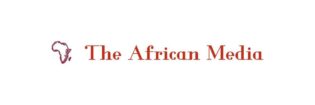Fuel queues have resurfaced in Lagos as many filling stations ran out of stock, leading to closures and long lines at the few stations still dispensing fuel.
On Sunday, checks conducted by the News Agency of Nigeria (NAN) in Lagos revealed a growing fuel scarcity as most filling stations along Ikorodu Road remained closed, leaving motorists stranded. The situation was particularly dire at the Nigerian National Petroleum Company Ltd. (NNPCL) and NIPCO stations at Fadeyi Bus-Stop, where long queues stretched down the road.
In other parts of the city, including Bank Anthony, only a few stations—Total, Northwest, and NNPCL—were open, each with overwhelming queues. Meanwhile, the Mobil Station at Salami Shaibu in Somolu Metropolis was forced to shut down due to chaos caused by commercial vehicles, further exacerbating the scarcity. Opportunistic illegal fuel hawkers took advantage of the crisis, selling fuel at exorbitant prices in areas like Ikorodu Road, Maryland, Gbagada, and Ogba.
Anonymous sources within the fuel marketing sector attributed the shortage to the Nigerian National Petroleum Company Ltd.’s (NNPCL) inability to settle payments to importers since March, as the company remains the sole importer of petroleum products. This has led to a significant strain on supply, leaving motorists and commuters frustrated.
Motorists like Chuks Edwin, a banker, expressed their exasperation with the growing queues, which have caused persistent traffic jams around fuel stations on Ikorodu Road and Ikeja. Edwin reported that the queues, which began to worsen last Wednesday, have made daily commutes a nightmare, urging the government to take swift action to alleviate the situation.
The fuel scarcity has also led to a sharp increase in transport fares across Lagos. Bus driver Jimoh Saka, operating from Ileja Bus Stop in Bariga, justified the fare hike from N200 to N300 for trips to Onipan, citing the long hours spent queuing for fuel. Saka emphasized that the situation was beyond the control of transport operators, who are struggling to keep their businesses afloat amidst the crisis.







